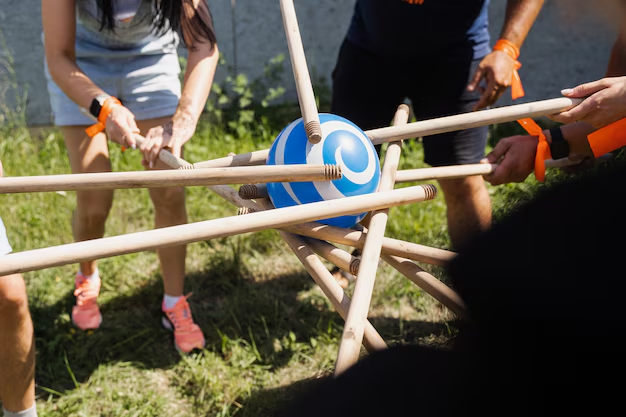Sports have always been an integral part of human civilization. Over the centuries, they have evolved from simple, ritualistic activities to the massive, global spectacles we witness today. The history of sports is a testament to the human spirit, demonstrating how societies have used physical contests not only for entertainment but also as a means of cultural expression, socialization, and even political power. Let’s explore this fascinating evolution, from ancient games to modern sports.
Ancient Beginnings
Sports have existed since the earliest days of human civilization, with ancient cultures engaging in physical competitions for various reasons, such as religious ceremonies, military training, or entertainment. One of the earliest known sports can be traced to ancient Mesopotamia, where the Sumerians held athletic competitions, often as part of religious festivals.
In ancient Egypt, the earliest evidence of organized sports can be found in tomb paintings and writings, depicting games like swimming, wrestling, and archery. Physical contests were often associated with the divine, and pharaohs would frequently participate in these activities to showcase their strength and authority.
The ancient Greeks are perhaps the most well-known civilization when it comes to the history of sports. The Olympic Games, first held in 776 BCE in Olympia, Greece, were a celebration of athleticism and religious devotion to the gods. Athletes competed in a variety of events, including running, wrestling, boxing, and pankration (a mix of boxing and wrestling). The Olympic Games became a symbol of unity and peace, as city-states temporarily ceased hostilities during the event.
The Roman Influence
The Romans took the concept of sports to another level, with a focus on large-scale, violent spectacles. Gladiatorial combat became the most famous form of entertainment, with fighters battling to the death in massive amphitheaters like the Colosseum in Rome. These events were not only a form of public entertainment but also a display of the emperor’s power and control over life and death.
Chariot races were also a significant part of Roman sports, with the Circus Maximus hosting races that could attract crowds of over 150,000 spectators. These events were a source of immense social and political influence, and the charioteers were often celebrated as heroes.
The Middle Ages
With the fall of the Roman Empire, the structure of organized sports began to break down, and many sports regressed into regional and local contests. However, the tradition of jousting, archery, and medieval tournaments became widespread in Europe during the Middle Ages. These events were not only competitions but also opportunities for knights to demonstrate their skills and for rulers to showcase their wealth and power.
In addition to these knightly competitions, folk games began to emerge across Europe. These games were often unregulated and could involve large groups of people. Examples include early versions of football (soccer) and rugby, which were played with few rules, often in villages or between neighboring towns.
The Renaissance and Early Modern Period
The Renaissance saw a revival of interest in the classical sports of the Greeks and Romans. At the same time, new forms of recreation, such as tennis, fencing, and archery, emerged. These activities were often enjoyed by the aristocracy and were seen as both social activities and ways to demonstrate physical prowess.
In the 17th and 18th centuries, a new kind of sporting culture began to take shape. The industrial revolution led to increased urbanization and the development of organized, standardized sports. This period also saw the rise of sports clubs and associations that helped to codify the rules of various games.
The Birth of Modern Sports
The late 19th and early 20th centuries marked the formalization of many modern sports. Football (soccer) became a global phenomenon, particularly in England, where it was first codified with the formation of the Football Association in 1863. Other popular sports, including cricket, rugby, tennis, and athletics, also began to form organized leagues, tournaments, and governing bodies.
One of the key events in the evolution of modern sports was the revival of the Olympic Games in 1896 by Pierre de Coubertin. The modern Olympics were established as a way to promote international unity, peace, and the celebration of athletic achievement. Today, the Olympic Games are the largest sporting event in the world, showcasing the highest level of athletic performance and the coming together of diverse cultures.
The Globalization of Sports
In the 20th and 21st centuries, sports became an integral part of global culture. Advancements in technology, media, and transportation have allowed sports to reach a worldwide audience. Television broadcasts, the internet, and social media have all played crucial roles in making sports a global spectacle. Events like the FIFA World Cup, the Super Bowl, and the Olympic Games draw millions of viewers from every corner of the globe, while athletes now have the opportunity to become international superstars.
Moreover, the commercialization of sports has transformed athletes into brands and multi-million-dollar businesses. Sponsorship deals, advertising, and endorsements have played a significant role in the evolution of sports, bringing immense financial gains to both athletes and organizations. These financial resources have also allowed for the development of more advanced training techniques, improved equipment, and the establishment of state-of-the-art facilities.
The Future of Sports
Looking to the future, sports will continue to evolve. The growth of e-sports has already introduced a new dimension to the world of competitive gaming, with millions of fans worldwide following virtual competitions. Additionally, advances in technology, such as virtual reality (VR) and augmented reality (AR), could lead to more immersive experiences for fans and new ways of engaging with sports. As the world becomes increasingly interconnected, the potential for new forms of sports and entertainment will continue to expand.
Conclusion
The evolution of sports is a story of human ingenuity, cultural exchange, and the drive to push physical limits. From ancient rituals to modern spectacles, sports have played a significant role in shaping societies and providing entertainment to billions around the world. As we move into the future, sports will continue to inspire and unite people across the globe, creating new traditions, opportunities, and ways to celebrate the human spirit.

